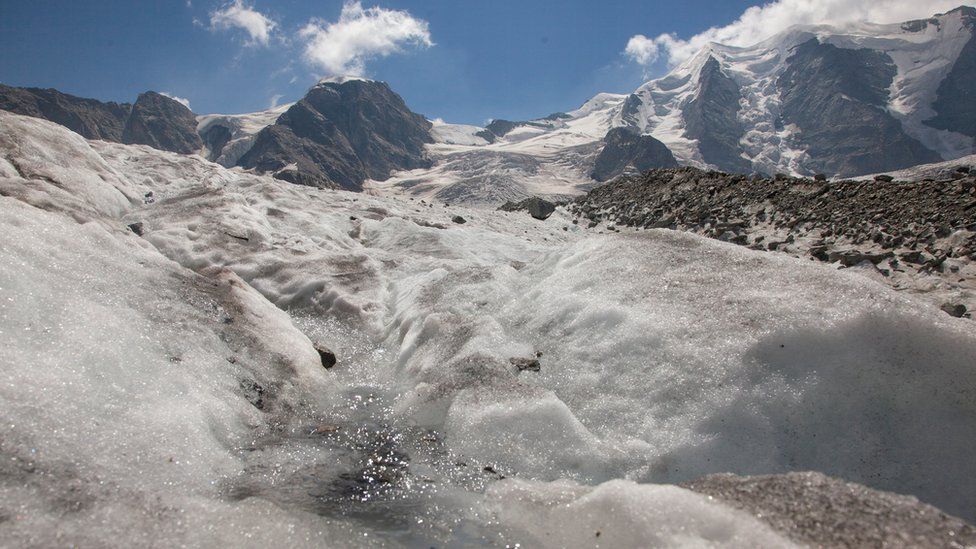ARTICLE AD BOX
 Image source, Reuters
Image source, Reuters
Glaciers in the Alps are at particular risk of rising temperatures due to climate change
By Imogen Foulkes & Adam Durbin
BBC News
More than 2,000 women are taking the Swiss government to court claiming its policy on climate change is violating their right to life and health.
The case is the first time the European Court of Human Rights (ECHR) will hear a case on the impact of climate change on human rights.
It follows six years of unsuccessful battles through the Swiss courts.
Temperatures in Switzerland are rising faster than the global average and there are ever more frequent heatwaves.
The Swiss women - who have an average age of 73 - say climate change is putting their human rights, their health and even their lives at risk. Their evidence to the court includes their medical records.
They want the ECHR to order Switzerland to work harder at reducing greenhouse gas emissions.
The Swiss government does not deny that climate change can affect health - but says it cannot be tied specifically to older women's health.
If the women are successful, the case could set a precedent for every one of the European court's 46 member states.
World temperatures are rising because of human activity, and climate change now threatens every aspect of human life.
Left unchecked, humans and nature will experience catastrophic warming, with worsening droughts, rising sea levels and mass extinction of species.
Extreme weather events are already more intense across the globe, threatening lives and livelihoods.
Temperature rises must slow down if we want to avoid the worst consequences of climate change, according to climate scientists. They say global warming needs to be kept to 1.5C by 2100.
According to the UN climate body, the IPCC, if global temperature rise cannot be kept within 1.5C, Europe will be vulnerable to flooding caused by extreme rainfall.
Extreme temperatures can also increase the risk of wildfires - as seen in Europe last summer. France and Germany recorded about seven times more land burnt between January and the middle of July 2022, compared with the average.
You may also be interested in:
World's largest ice rink closed due to lack of ice

 1 year ago
36
1 year ago
36








 English (US) ·
English (US) ·